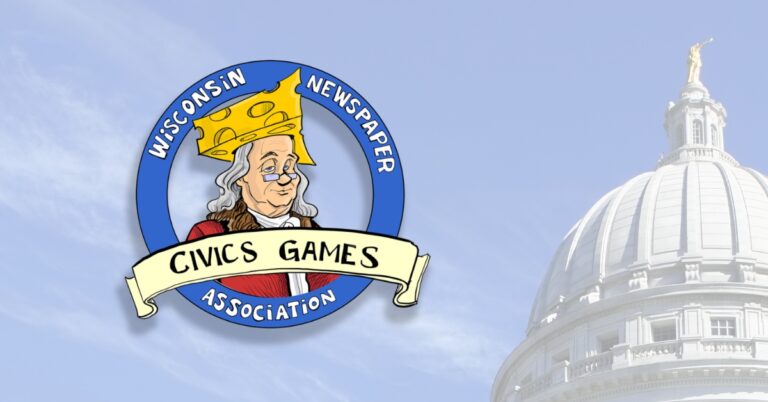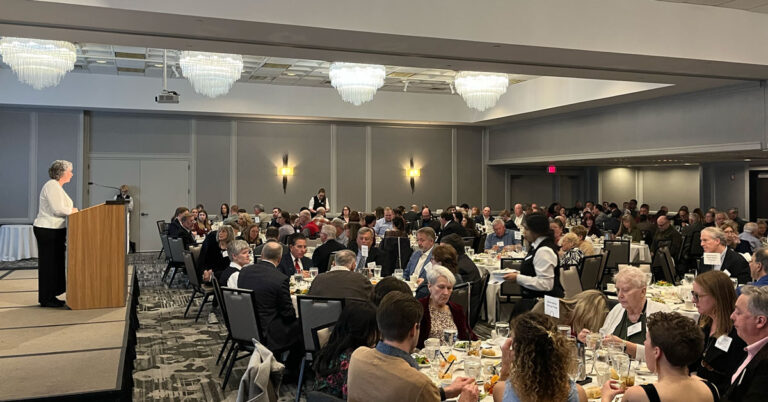The Capitol Report, produced by WisPolitics.com — a nonpartisan, Madison-based news service that specializes in coverage of government and politics — provides a weekly analysis of issues being debated in Wisconsin state government. It is underwritten by the WNA and produced exclusively for its members. WisPolitics.com President Jeff Mayers is a former editor and reporter for the Associated Press and a former political writer for the Wisconsin State Journal.
Baseball season is over, but Brewers fans should pay attention to a team victory at the Capitol.
The Major League Baseball team is going to get half a billion dollars in new public money over the next 27 years to take care of maintenance at American Family Field in Milwaukee.
And it didn’t have to cross any of its red lines in the process. The Legislature recently put the finishing touches on a nearly $675 million funding package. Those touches included a ticket surcharge on
non-Brewers events to lower the state’s contribution while making sure Milwaukee County and the city will have spots on the reconfigured board that will oversee the stadium district.
The changes were just enough to get 19 members of the state Senate on board — changes agreed to by the Assembly as the GOP-run Legislature sent the bill to Democratic Gov. Tony Evers.
An earlier version of the bill that cleared the Assembly included a $411 million contribution from the state, $135 million combined from Milwaukee County and the city, and no spots on the district board for
the two local governments. Still, co-author Rep. Rob Brooks, R-Saukville, quickly signaled to a Senate committee that backers were open to changes that would lower the state contribution and give
locals a seat at the table.
The first tweaks in an amendment approved in committee dropped the state’s contribution by nearly $30 million through a ticket surcharge on non-Brewers events. The team agreed to pitch in another $10
million, and regular audits of the stadium district’s finances were added.
Publicly, Senate Democrats kept pushing for more changes, including representation for Milwaukee County and the city on the reconfigured stadium district board considering the money the local governments were putting into the deal. They also wanted a lower contribution from the state.
Privately, they were getting pressure from organized labor and Evers to back the deal with Republicans short of the 17 votes needed to pass it. Just ahead of the vote, the ticket surcharge got a boost, the
state’s contribution dropped to $365.8 million, and Milwaukee County and the city got their spots on the board.
In the end, it was just enough to cobble together the support of 19 senators.
As much as the Brewers — or at least their ballpark — will get, insiders note none of it will make the team uncomfortable. Some critics are still confused over the lack of a ticket tax on Brewers games. That was a key provision that made the Milwaukee Bucks deal work — a no-brainer to those who saw it as essentially a user fee.
But the team considered it a non-starter, worried it would hurt attendance in one of the smallest markets in Major League Baseball by driving up costs. Yet, as concerned as the team seems to be about
costs for the average fan, the Brewers sure don’t seem worried about beer prices, critics fume. Some wanted to see the team commit to development around the stadium, but the final bill only includes
studying the feasibility of that. And other ideas like clawback provisions to redirect proceeds from a future sale of the team to Wisconsin taxpayers never got any traction.
While even some who backed the final deal weren’t thrilled with the terms, no one wanted to be seen as the roadblock that triggered the Brewers to leave Wisconsin. Ever since Evers introduced his plan to
give the stadium district $290 million in surplus state money upfront to invest and then cover maintenance costs through 2043 — only for GOP leaders to reject it — the belief has been the team would eventually get a deal from the state. It was just a matter of the numbers.
Getting a package to the finish line, insiders say, was more a credit to the Capitol players involved than the team. While backers of the deal were happy to ensure professional baseball will stay in Wisconsin
through 2050, they haven’t always been fans of how the Brewers approached its lobbying effort at the Capitol. Insiders still can’t get over principal owner Mark Attanasio buying a larger stake in a
European soccer club at the same time he was asking Wisconsin taxpayers to pony up more money for stadium maintenance.
For some Dems, the efforts by Evers’ office and labor were key in getting it done. Sen. Dan Feyen, R-Fond du Lac, and Brooks shepherded the legislation through the process.
Meanwhile, Senate leaders Melissa Agard, D-Madison, and Devin LeMahieu, R-Oostburg, knew the numbers they could get from their caucuses, and it all came together in the end with a couple of votes
to spare.
As unpopular as the prospect of millions in public money to a privately owned baseball team is, some say it’s simply the price of having professional sports in your state. And they expect the team to
come back to taxpayers for more before the current deal ends in 2050.
Only six Major League teams played in stadiums 50 years or older during this season, and that includes the Oakland A’s, now on their way to Las Vegas. American Family Field, opened in 2001, doesn’t have
the history of a Fenway Park or Wrigley Field. That has some bracing for the team putting in a request for taxpayer support to build a brand-new stadium with a cost in today’s dollars of about $1.5
billion.
-For more, go to www.wispolitics.com
The Capitol Report is written by editorial staff at WisPolitics.com, a nonpartisan, Madison-based news service that specializes in coverage of government and politics and is distributed for
publication by members of the Wisconsin Newspaper Association.
Copyright © WisPolitics.com



